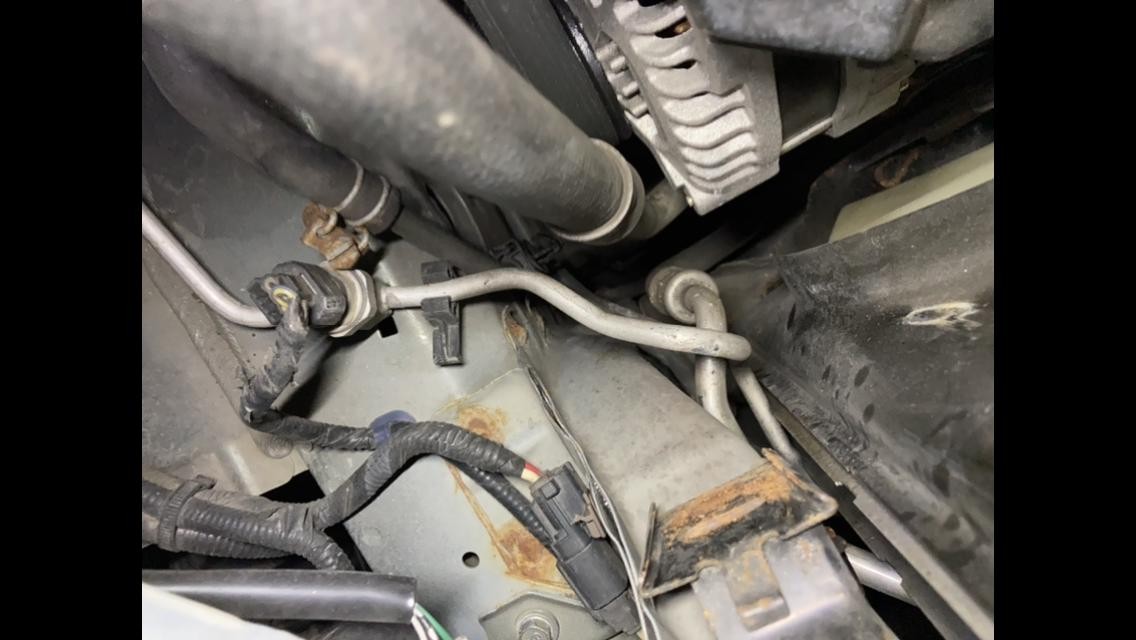Dealing with a failing car air conditioning system, especially in the heat, is a common driver’s nightmare. Discovering a leak, possibly a pinhole in the AC line, can lead to considering quick fixes. One popular DIY solution that often comes to mind is JB Weld. But can you actually repair a pinhole in your car’s AC system, specifically the high-pressure line, using JB Weld effectively? This question was recently raised in an online car enthusiast forum, and the discussion offers valuable insights for anyone facing a similar AC dilemma.
The original poster, facing a zero-pressure AC system in their daughter’s 2010 Accord, suspected a pinhole leak in the high-side line, a notoriously difficult component to replace. After vacuuming the system and observing immediate pressure neutralization, the user considered the seemingly convenient option of JB Weld as a sealant. The core question was straightforward: would JB Weld withstand the high pressure within an aluminum AC line?
Initial responses in the forum leaned towards a cautious optimism. One user pointed out JB Weld’s impressive 4000 PSI strength rating, suggesting it should be theoretically strong enough to handle AC system pressures. However, crucial caveats were immediately raised concerning surface preparation and the porosity of JB Weld itself. Effective adhesion is paramount for JB Weld to work, especially in an environment exposed to refrigerant and pressure.
Another forum member highlighted a critical point: corrosion. If the pinhole is a result of corrosion, it’s likely that the surrounding area is also compromised, and more leaks may develop soon. This perspective casts doubt on JB Weld as a long-term solution, suggesting it might only be a temporary patch at best. The consensus started to shift towards JB Weld not being a reliable fix.
As the discussion progressed, the original poster provided more details, revealing the actual leak was harder to access than initially thought, caused by the AC line rubbing against the radiator due to a misaligned clip after previous bodywork. Faced with this more complex situation, the user considered different JB Weld products – original JB Weld, JB Quick, and JB Stick – emphasizing the desire for a single, effective attempt at repair.
An insightful suggestion emerged: reinforcing the JB Weld repair with a patch and clamp. This approach involves using JB Weld to seal the pinhole, but then adding a physical barrier, like a piece of tubing secured with a hose clamp, to bear the brunt of the pressure. This method aims to minimize reliance on JB Weld’s tensile strength alone and focuses on its sealing properties.
Further practical advice included ensuring the JB Weld mixture is thoroughly combined for proper curing, even in the absence of oxygen, and the crucial step of meticulous surface cleaning. Removing compressor oil and contaminants with acetone and light sanding before applying JB Weld is essential for adhesion.
However, dissenting voices strongly advised against relying on JB Weld. One experienced voice stated definitively that JB Weld would likely fail due to pressure and thermal expansion within the AC system. The recommendation shifted towards more robust solutions like compression fittings. These fittings allow for cutting out the damaged section of the AC line and splicing in a new section, providing a mechanical seal designed for pressure.
Other suggested alternatives included brazing the aluminum line with specialized rods, a more permanent repair requiring specific skills and equipment, or, ideally, replacing the damaged AC line entirely. While brazing was reported to have worked in some cases for small holes, and compression fittings were acknowledged as effective for straight sections of tubing, the underlying message became clear: JB Weld is a highly questionable long-term fix for a pinhole leak in a car AC high-pressure line.
In conclusion, while JB Weld might offer a tempting quick fix for a pinhole leak in a car AC line, especially when reinforced with a patch and clamp, expert and experienced opinions lean heavily against it as a reliable or lasting solution. The high pressures, temperature fluctuations, and potential for further corrosion in AC systems demand more robust repair methods. Compression fittings, brazing, or complete line replacement are significantly better options for a durable AC repair. While JB Weld might temporarily seal the leak, it’s generally considered a gamble with a high probability of failure, potentially leading to further expenses and system downtime. For a critical system like your car’s AC, investing in a proper repair is usually the wiser, more cost-effective choice in the long run.

